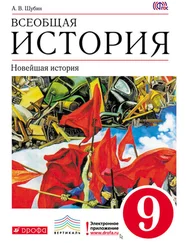Cohen, D. (2009), Three Lectures on Post-Industrial Society , Cambridge, MA: Massachusetts Institute of Technology Press.
Cohen, N. (2010), ‘Now, More than Ever, the Poor Need a Voice’, Observer , 7 October, p. 33.
Coleman, D. (2010), ‘When Britain Becomes “Majority Minority”’, Prospect , 17 November.
Collison, M. (1996), ‘In Search of the High Life’, British Journal of Crimino logy , 36(3): 428–43.
Crawford, M. (2009), Shop Class as Soulcraft: An Enquiry into the Value of Work , New York: Penguin.
Dench, G., Gavron, K. and Young, M. (2006), The New East End: Kinship, Race and Conflict , London: Profile Books.
De Waal, F. (2005), Our Inner Ape , London: Granta Books.
Dinmore, G. (2010a), ‘Tuscan Town Turns Against Chinese Immigrants’, Financial Times , 9 February, p. 2.
Dinmore, G. (2010b), ‘Chinese Gangs Exploit Niche Left by Mafia’, Financial Times, 29 June, p. 5.
Doerr, N. (2006), ‘Towards a European Public Sphere “from Below”? The Case of Multilingualism within the European Social Forums’, in C. Barker and M. Tyldesley (eds), Conference Papers of the Eleventh International Conference on ‘Alternative Futures and Popular Protest’, vol. II , Manchester: Manchester Metropolitan University.
Dvorak, P. and Thurm, S. (2009), ‘Slump Prods US Firms to Seek a New Compact with Workers’, Wall Street Journal, 20 October, pp. 14–15.
The Economist (2007), ‘Changing How Japan Works’, The Economist , 29 September, p. 70.
The Economist (2009), ‘Public Sector Unions: Welcome to the Real World’, The Economist , 12 December, p. 46.
The Economist (2010a), ‘Too Many Chiefs’, The Economist , 26 June, p. 72.
The Economist (2010b), ‘Dues and Don’ts’, The Economist , 14 August, p. 62.
The Economist (2010c), ‘The Biology of Business: Homo Administrans’, The Economist , 23 September.
Ehrenreich, B. (2009), Smile or Die: How Positive Thinking Fooled America and the World , London: Granta.
Ehrenreich, B. and Fletcher, B. (2009), ‘Reimagining Socialism’, The Nation , 23 March.
Elger, T. and Smith, C. (2006), ‘Theorizing the Role of the International Subsidiary: Transplants, Hybrids and Branch Plants Revisited’, in A. Ferner, J. Quintanilla and C. Sбnchez-Runde (eds), Multinationals, Institutions and the Construction of Transnational Practices: Convergence and Diversity in the Global Economy , Basingstoke: Palgrave Macmillan, pp. 53–85.
Environmental Justice Foundation (2009), No Place Like Home: Where Next for Climate Refugees? London: Environmental Justice Foundation.
Equality and Human Rights Commission (2010), Inquiry into the Meat and Poultry Processing Sectors: Report of the Findings and Recommendations , London: EHRC.
Esping-Andersen, G. (1990), The Three Worlds of Welfare State Capitalism , Cambridge, UK: Cambridge University Press.
Evans, G. W. and Schamberg, M. A. (2009), ‘Childhood Poverty, Chronic Stress, and Adult Working Memory’, Proceedings of the National Academy of Sciences , 106(16): 6545–9.
Fackler, M. (2009), ‘Crisis-Hit South Koreans Living Secret Lives with Blue-Collar Jobs’, International Herald Tribune , 8 July, p. 1.
Fackler, M. (2010), ‘New Dissent in Japan Is Loudly Anti-Foreign’, New York Times , 29 August, p. A6.
Fauroux, R. (2005), La lutte contre les discriminations ethniques dans le domaine de l’emploi [Combating Ethnic Discrimination in Employment] , Paris: HALDE.
Federal Communications Commission (2010), National Broadband Plan: Connecting America , Washington, DC: Federal Communications Commission.
Fifield, A. (2010), ‘Tea Party Brews Trouble for Both Sides as Protest Recoils on Right’, Financial Times , 28 January, p. 5.
Financial Times (2010a), ‘Britain’s Growing Inequality Problem’, Financial Times , 28 January, p. 14.
Financial Times (2010b), ‘Osborne Preaches One Nation Austerity’, Financial Times , 5 October, p. 16.
Fiszbein, A. and Schady, N. (2009), Conditional Cash Transfers: Reducing Present and Future Poverty , Washington, DC: World Bank.
Florida, R. (2003), The Rise of the Creative Class, and How It’s Transforming Work, Leisure, Community and Everyday Life , London: Basic Books.
Florida, R. (2010), ‘America Needs to Make Its Bad Jobs Better’, Financial Times , 6 July, p. 11.
Forrest, R. and Kearns, A. (2001), ‘Social Cohesion, Social Capital and the Neighbourhood’, Urban Studies , 38(12): 2125–43.
Foucault, M. (1977), Discipline and Punish: The Birth of the Prison , London: Penguin.
Freeman, R. (2005), ‘What Really Ails Europe (and America): The Doubling of the Global Workforce’, The Globalist , 3 June. Available at http://www.theglobalist.com/storyid.aspx?StoryId=4542 [accessed 6 December 2010].
Friedman, M. (1982), Capitalism and Freedom , Chicago, IL: University of Chicago Press.
Friedman, M. and Kuznets, S. (1945), Income from Independent Professional Practice , New York: National Bureau of Economic Research.
Frohlich, N. and Oppenheimer, J.A. (1992), Choosing Justice: An Experimental Approach to Ethical Theory , Berkeley, CA, and Los Angeles, CA: University of California Press.
Gibney, M. J. (2009), Precarious Residents: Migration Control, Membership and the Rights of Non-Citizens , New York: Human Development Reports Research Paper 2009/10, United Nations Development Programme.
Giridharadas, A. (2009), ‘Putting the Students in Control’, International Herald Tribune , 7–8 November, p. 2.
Goldthorpe, J. H. (2007), On Sociology , second edition, Stanford: Stanford University Press.
Goldthorpe, J. H. (2009), ‘Analysing Social Inequality: A Critique of Two Recent Contributions from Economics and Epidemiology’, European Sociological Review , 22 October. Available at http://esr.oxfordjournals.org/content/early/2009/10/22/esr. jcp046. abstract [accessed 2 December 2010].
Goos, M. and Manning, A. (2007), ‘Lousy and Lovely Jobs: The Rising Polarisation of Work in Britain’, Review of Economics and Statistics , 89(1): 118–33.
Gorz, A. (1982), Farewell to the Working Class: An Essay on Post-Industrial Socialism , London: Pluto Press. [Original published as Adieux au proletariat , Paris: Galilée, 1980.]
Green, H. (2010), The Company Town: The Industrial Edens and Satanic Mills That Shaped the American Economy , New York: Basic Books.
Grene, S. (2009), ‘Pension Investors Fail to Get the Message’, FT Report – Fund Management , 27 July, p. 3.
Grimm, S. and Ronneberger, K. (2007), An Invisible History of Work: Interview with Sergio Bologna . Available at http://www.springerin.at/dyn/heft_text.php?textid=1904&lang=en [accessed 2 December 2010].
Haidt, J. (2006), The Happiness Hypothesis , London: Arrow Books.
Hankinson, A. (2010), ‘How Graduates Are Picking Up the Tab for Their Parents’Lives’, The Observer , 31 January.
Hansard Society (2010), Audit of Political Engagement 7: The 2010 Report , London: Hansard Society.
Hardt, M. and Negri, A. (2000), Empire , Cambridge, MA: Harvard University Press.
Harris, P. (2010), ‘Can Geoffrey Canada Rescue America’s Ailing Schools? Barack Obama Hopes So’, The Observer , 10 October.
Hauser, M. D. (2006), Moral Minds: How Nature Designed Our Universal Sense of Right and Wrong , New York: Harper Collins.
Читать дальше
Конец ознакомительного отрывка
Купить книгу






